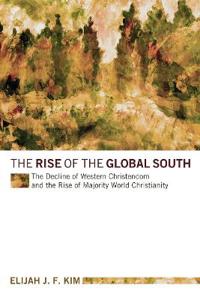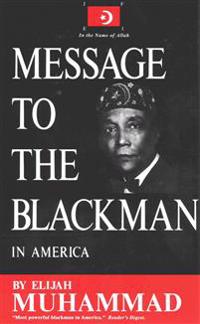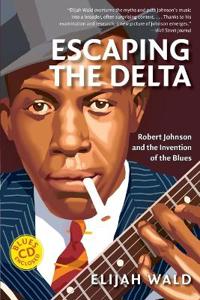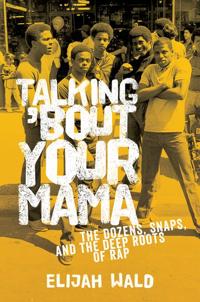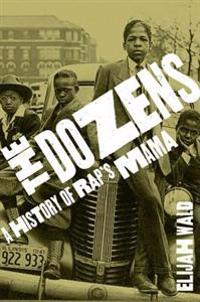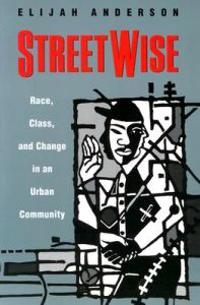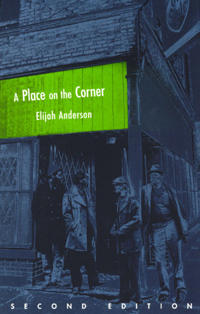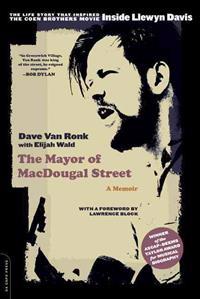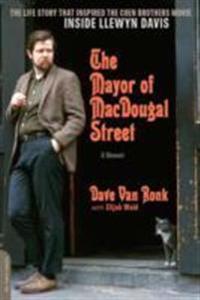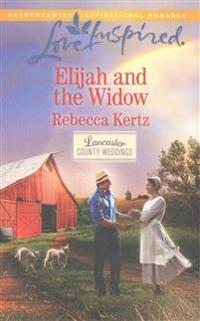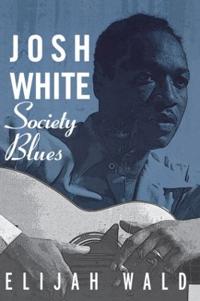Elijah's Disneyland Paris Resort 2015: The Ultimate Guide (Häftad)
avElijah Sky
ISBN: 9781505477672 - UTGIVEN: 2014-12Elijah's Miniguide to Fantasyland at Disneyland Paris 2015 (Häftad)
avElijah Sky
ISBN: 9781506145303 - UTGIVEN: 2015-01The Rise of the Global South (Pocket)
avElijah J. F. Kim, Luis (FRW) Bush, Elijah J. F. Kim
ISBN: 9781610979702 - UTGIVEN: 2012-04The History of Jesus' Birth, Death and What It Means to You and Me: (Häftad)
avElijah Muhammad, Elijah
ISBN: 9781884855078 - UTGIVEN: 1995-09Message to the Blackman in America (Häftad)
avElijah Muhammad, Elijah
ISBN: 9781929594016 - UTGIVEN: 2012-04Narcocorrido: A Journey Into the Music of Drugs, Guns, and Guerrillas (Häftad)
avElijah Wald
ISBN: 9780060505103 - UTGIVEN: 2002-10In the first full-length exploration of the contemporary and controversial Mexican corrido, award-winning author Elijah Wald blends a travel narrative with his search for the roots of this genre -- a modern outlaw music that fuses the sensibilities of medieval ballads with the edgy grit of gangsta r[...]
Escaping the Delta (Övrigt)
avElijah Wald
ISBN: 9780060524272 - UTGIVEN: 200501The life of blues legend Robert Johnson becomes the centerpiece for this innovative look at what many consider to be America's deepest and most influential music genre. Pivotal are the questions surrounding why Johnson was ignored by the core black audience of his time yet now celebrated as the grea[...]
Dylan Goes Electric! (Inbunden)
avElijah Wald
ISBN: 9780062366689 - UTGIVEN: 2015-07One of the music world's pre-eminent critics takes a fresh and much-needed look at the day Dylan "went electric" at the Newport Folk Festival, timed to coincide with the event's fiftieth anniversary. On the evening of July 25, 1965, Bob Dylan took the stage at Newport Folk Festival, backed by an el[...]
The Blues (Häftad)
avElijah Wald
ISBN: 9780195398939 - UTGIVEN: 201006Praised as "suave, soulful, ebullient" (Tom Waits) and "a meticulous researcher, a graceful writer, and a committed contrarian" (New York Times Book Review), Elijah Wald is one of the leading popular music critics of his generation. In The Blues, Wald surveys a genre at the heart of American culture[...]
The Great Endarkenment (Inbunden)
avElijah Millgram
ISBN: 9780199326020 - UTGIVEN: 2015-06Human beings have always been specialists, but over the past two centuries division of labor has become deeper, ubiquitous, and much more fluid. The form it now takes brings in its wake a series of problems that are simultaneously philosophical and practical, having to do with coordinating the acti[...]
Talking 'Bout Your Mama (Häftad)
avElijah Wald
ISBN: 9780199394043 - UTGIVEN: 2015-01From Two Live Crew's controversial comedy to Ice Cube's gangsta styling and the battle rhymes of a streetcorner cypher, rap has always drawn on deep traditions of African American poetic word-play, In Talking About Your Mama, author Elijah Wald explores one of the most potent sources of rap: the vic[...]
Intuition (Inbunden)
avElijah Chudnoff
ISBN: 9780199683000 - UTGIVEN: 2013-12We know about our immediate environment-about the people, animals, and things around us-by having sensory perceptions. According to a tradition that traces back to Plato, we know about abstract reality-about mathematics, morality, and metaphysics-by having intuitions, which can be thought of as inte[...]
How The Beatles Destroyed Rock 'n' Roll (Häftad)
avElijah Wald
ISBN: 9780199756971 - UTGIVEN: 201111Overthrowing the conventional pieties of mainstream jazz and rock history, Elijah Wald traces the evolution of popular music through developing tastes, trends and technologies-including the role of records, radio, jukeboxes and television-to give a fuller, more balanced account of the broad variety [...]
The Dozens: A History of Rap's Mama (Inbunden)
avElijah Wald
ISBN: 9780199895403 - UTGIVEN: 201206Following his groundbreaking explorations of the blues and American popular music in Escaping the Delta and How the Beatles Destroyed Rock 'n' Roll, Elijah Wald turns his attention to the tradition of African American street rhyming and verbal combat that ruled urban neighborhoods long before rap: t[...]
Streetwise (Pocket)
avElijah Anderson
ISBN: 9780226018164 - UTGIVEN: 1992-11Subject classification:- Sociology: Race, Ethnic, and Minority Relations; Black Studies
A Place on the Corner (Pocket)
avElijah Anderson
ISBN: 9780226019598 - UTGIVEN: 2003-10This paperback edition of "A Place on the Corner" marks the twenty-fifth anniversary of Elijah Anderson's sociological classic, a study of street corner life at a local barroom/liquor store located in the ghetto on Chicago's South Side. Anderson returned night after night, month after month, to gain[...]
Elijah and the Rabbis: Story and Theology (Övrig)
avKristen H. Lindbeck
ISBN: 9780231130806 - UTGIVEN: 2010-06-07Through an innovative synthesis of narrative critique, oral-formulaic study, folkloric research, and literary analysis, Kristen H. Lindbeck reads all the Elijah narratives in the Babylonian Talmud and details the rise of a distinct, quasi-angelic figure who takes pleasure in ordinary interaction. Du[...]
Elijah and the Rabbis: Story and Theology (Övrig)
avKristen H. Lindbeck
ISBN: 9780231130813 - UTGIVEN: 2010-06-07Through an innovative synthesis of narrative critique, oral-formulaic study, folkloric research, and literary analysis, Kristen H. Lindbeck reads all the Elijah narratives in the Babylonian Talmud and details the rise of a distinct, quasi-angelic figure who takes pleasure in ordinary interaction. Du[...]
The Mayor of Macdougal Street (Häftad)
avElijah Wald, Lawrence Block
ISBN: 9780306814792 - UTGIVEN: 200604This work presents a fascinating memoir of the '60s Greenwich Village folk revival through the eyes of one of its most legendary figures. Dave Van Ronk (1936 - 2002) was a leading founder of the '60s folk revival, as well as a pioneer of modern acoustic blues, a fine songwriter and arranger, a power[...]
Raising Elijah (Häftad)
avSandra Steingraber
ISBN: 9780306820755 - UTGIVEN: 201304Nothing could be more important than the health of our children, and no one is better suited to examine the threats against it than Sandra Steingraber. Once called "a poet with a knife," she blends precise science with lyrical memoir. In "Living Downstream" she spoke as a biologist and cancer surviv[...]
Mayor of Macdougal Street (Häftad)
avDave Van Ronk, Elijah Wald
ISBN: 9780306822162 - UTGIVEN: 2013-01Dave Van Ronk (1936-2002) was one of the founding figures of the 1960s folk revival, but he was far more than that. A pioneer of modern acoustic blues, a fine songwriter and arranger, a powerful singer, and one of the most influential guitarists of the '60s, he was also a marvelous storyteller, a pe[...]
Elijah and the Widow
ISBN: 9780373719457 - UTGIVEN: 2016-03The Widow's Second Chance
Martha King has been a widow for only a few months, but already the community wants her to remarry. But after her childless marriage, she isn't in a rush to give her heart to another manuntil Elijah Lapp. The handsomeand youngerEli hires on at Martha's farm to earn extr[...]Code of the Street (Häftad)
avElijah Anderson
ISBN: 9780393320787 - UTGIVEN: 200107Inner-city black America is often stereotyped as a place of random violence; in fact, violence in the inner city is regulated through an informal but well-known code of the street. How you dress, talk, and behave can have life-or-death consequences, with young people particularly at risk. The most p[...]
Cognitive Phenomenology (Pocket)
avElijah Chudnoff
ISBN: 9780415660259 - UTGIVEN: 2015-03Phenomenology is about subjective aspects of the mind, such as the conscious states associated with vision and touch, and the conscious states associated with emotions and moods, such as feelings of elation or sadness. These states have a distinctive first-person 'feel' to them, called their phenome[...]
Josh White (Häftad)
avElijah Wald
ISBN: 9780415942041 - UTGIVEN: 200210Born in South Carolina, White spent his childhood as a "lead boy" for traveling blind bluesmen. In the early '30s he moved to New York and became a popular blues star, then introduced folk-blues to a mass white audience in the 1940s. He was famed both for his strong Civil Rights songs, which made h[...]



